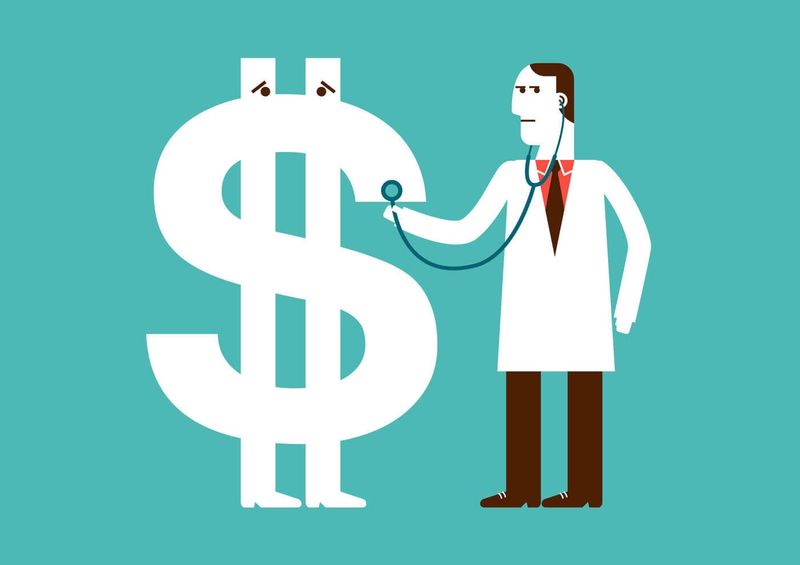As the economy evolves and living costs rise, many Baby Boomers are facing the harsh reality of being unable to afford certain essentials and luxuries they once took for granted.
From healthcare to housing, the financial landscape is shifting, potentially putting these items out of reach for many in this generation.
This blog post explores 12 things that Boomers might find increasingly unaffordable in the next decade, examining the reasons behind these trends and offering insights on how to navigate these changes.
1. Healthcare Costs
Healthcare costs are rising rapidly, and many Boomers are finding it difficult to keep up. Insurance premiums, deductibles, and out-of-pocket expenses are climbing. This trend is expected to continue, making healthcare increasingly unaffordable for retirees.
One major factor is the aging population, which increases demand for medical services. Technological advancements, while improving care quality, also add to costs.
Boomers should consider investing in supplemental insurance or healthcare savings accounts. Staying informed about government support programs is also crucial. Taking steps now can help alleviate future burdens.
2. Retirement Communities
Retirement communities offer various amenities but are becoming more expensive. With rising real estate prices and maintenance costs, affordability is a concern.
These communities provide healthcare services, recreational activities, and social opportunities. However, the cost of living in such places is expected to rise significantly.
Boomers should explore alternative living arrangements, like co-housing or aging in place. Planning and saving early can help offset potential expenses. Understanding different financial options for retirement living is also beneficial.
3. Travel and Leisure
Travel and leisure activities are cherished by Boomers, but growing costs may limit these experiences. Airfare, accommodation, and travel insurance expenses are on the rise.
Economic uncertainties and fluctuating currency values contribute to this trend. Additionally, travel restrictions and health concerns further impact affordability.
Boomers should consider travel reward programs and off-peak travel deals to reduce costs. Planning trips closer to home might also be a viable solution. Emphasizing experiences over luxury can make travel more enjoyable and affordable.
4. Home Ownership
Home ownership has always been a dream for many, but it might become elusive for Boomers. Rising property taxes and maintenance costs are significant hurdles.
As property values climb, affording homes in desirable locations becomes challenging. Downsizing or relocating to more affordable areas are options worth considering.
Boomers should evaluate their housing needs carefully. Exploring reverse mortgages or renting can also provide financial relief. Making informed decisions about housing can ensure stability in later years.
5. Higher Education for Grandchildren
Many Boomers wish to support their grandchildren’s education, but college tuition is skyrocketing. Financial aid and scholarships can help, but the burden often falls on families.
The increasing cost of education is driven by administrative expenses and reduced state funding. This trend shows no signs of abating.
Boomers can start saving early, using education savings accounts or investing in 529 plans. Encouraging grandchildren to apply for scholarships can also alleviate costs. Being proactive can ensure educational support remains feasible.
6. Luxury Vehicles
Luxury vehicles symbolize success, but they may become unaffordable for many Boomers. High purchase prices, insurance, and maintenance costs are major factors.
The appeal of luxury cars lies in their quality and status, but financial constraints make them less attainable. Additionally, economic shifts impact pricing and affordability.
Boomers should consider more economical vehicle options or leasing instead of buying. Prioritizing practicality and budgeting for transportation can maintain financial health. Exploring car-sharing services is another modern solution.
7. Fine Dining
Fine dining offers exquisite experiences, but rising costs may limit access for Boomers. Ingredients, labor, and operational expenses contribute to pricier menus.
Dining out is not just about food; it’s a social activity. However, economic pressures make frequent indulgences a financial strain.
Boomers might explore alternatives like cooking at home or dining during special promotions. Emphasizing quality over quantity can enhance enjoyment. Being mindful of dining budgets ensures continued culinary pleasures.
8. Personal Care Services
Personal care services like spas and salons are becoming costly. Labor and product prices contribute to rising fees.
These services offer relaxation and wellness but may become luxuries rather than regular expenses. With economic fluctuations, budgeting for such services is essential.
Boomers can seek discounts or membership programs for savings. DIY personal care routines at home are also practical alternatives. Maintaining self-care without financial stress is achievable with thoughtful planning.
9. Energy Costs
Energy costs are a growing concern. Utility bills for electricity, gas, and water are escalating, impacting Boomers’ budgets. Environmental policies and resource scarcity contribute to this rise.
Adopting energy-efficient appliances and home improvements can reduce consumption. Exploring renewable energy sources, like solar panels, is a smart investment.
Boomers should remain informed about government incentives for energy efficiency. Being proactive in managing energy usage can mitigate financial strain and promote sustainability.
10. Healthcare Supplements
Supplements play a crucial role in maintaining health, yet they are becoming pricier. Market demand and production costs drive these increases.
For Boomers, supplements support nutrition and well-being. However, budget constraints might limit access.
Boomers can consult healthcare professionals to prioritize essential supplements. Seeking generic brands or bulk purchases may offer savings. Being strategic about supplement choices ensures continued health benefits without financial pressure.
11. Pet Care
Pet care costs, including veterinary services and pet supplies, are rising. Boomers who cherish their pets may find these expenses straining.
Healthcare, grooming, and nutrition costs contribute to this trend. Economic downturns further impact affordability.
Boomers can explore pet insurance or budget for regular expenses. Researching affordable pet care options, like community clinics, can also help. Ensuring pets’ well-being without excessive financial burden is possible with careful planning.
12. Home Renovations
Home renovations are often necessary for aging comfortably, but costs are rising. Materials, labor, and permits are driving expenses.
Renovating improves quality of life but requires careful financial consideration. Budget overruns are common, making planning essential.
Boomers should prioritize essential renovations and seek multiple quotes to find competitive pricing. Exploring financing options, like home equity loans, is advisable. Ensuring a comfortable living environment without breaking the bank is achievable.












